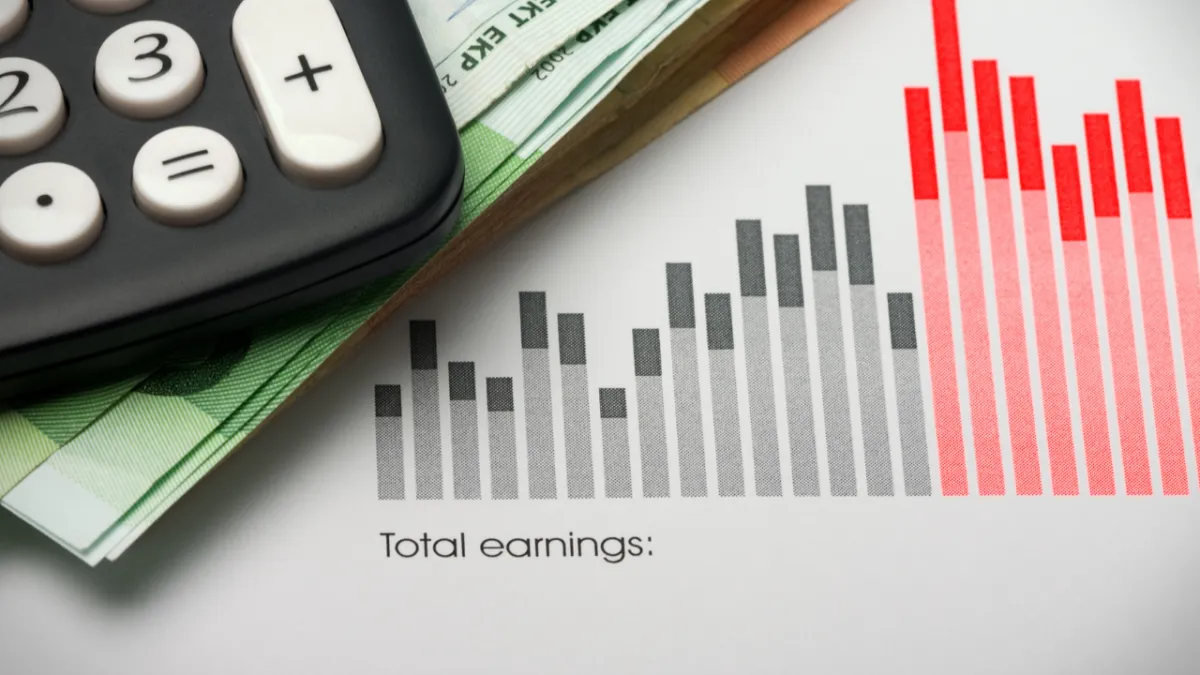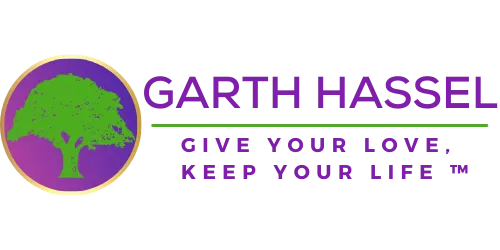Post-Pandemic W.E.L.L.ness
Working, Earning, Learning, and Launching to Thrive

Post-Pandemic W.E.L.L.ness
Working, Earning, Learning, and Launching to Thrive


Post-Pandemic W.E.L.L.ness
The COVID-19 pandemic pounded a nail in the coffin of traditional money advice. For example, consider the rule of thumb for emergency savings to cover 3 to 6 months of living expenses. The basis for “3 to 6 months of living expenses” was an assumption for how long it would take to find a new job. What if your job was in a field the lockdowns annihilated?
Lockdown lunacy is only one variant away from returning. Piling relentlessly on is rampant inflation.
Those disconnecting from the oppression of lockdowns and mask mandates are insulating themselves from future impositions. Working, Earning, Learning, Launching from home.
Working

Employers have cycled, to the extent possible, allowing their employees to work from home to back at the normal workplace. While working from home is impossible in many fields, you at least now know what might be possible with your current employer.
Employee Pivot: How can you be ready to be most productive for your employer when the next crisis hits? What additional skills or tools can you acquire now to maintain productivity?
Earning
As long as you are a W2 employee, you are in a fundamentally reactive position at the bottom of the income food chain.

Side Hustle Pivot: Apply your skills and passions to a primarily online service model. You may have heard this referred to as being a “freelancer” or “gig worker.” Start by approaching your warm market—people you already know—and ask what their biggest frustration or challenge is related to your skills. Find a way to solve their problem with no physical contact.
You are simultaneously gaining pandemic-resistant income while being able to write off many of your expenses. If your freelancing gig does not directly conflict with your employment then you could build this second income around your job.
Learning
Take the reins of your kids’ education.

Homeschool Pivot: If your kids are stuck at home, then focus their attention on their strengths. This builds confidence. Agonizing over weaknesses is a fool’s errand. The most successful people get paid to do what they’re good at. They delegate, outsource, or partner with those whose strengths compliment theirs. Homeschooling lets you cut the fluff to teach what matters. If you’re working from home, learning new skills and ways of doing things, then your own career becomes an instant model to your kids.
Public School Pivot: Some school districts and even states were well ahead of the online learning curve rather than reacting to the sudden need for it. State-sponsored online learning guarantees that the progress will transfer across school districts in the state and be accepted at state colleges and universities. Some school districts have done this on their own. You don’t even have to live within the district to enroll. This gives you another state-approved option. Either way, the program provides the tech, the tech support, and has truly prepared teaching staff dedicated to online learning.
Launching
Pivoting parents are refocusing their and their kids’ attention and aspirations toward success in the new normal.
Trades Pivot: Reframe your approach to or even the need for a college education. Discover what your nearest community/vocational college offers. Consider what high-paying trades your kids could learn so that in two years they are out of the house and self-sufficient!
College Pivot: Cutting the fluff allows your students more time to explore their strengths. Should those strengths point to higher education, then there is also more time for learning the subjects covered in college admissions tests.
Business Pivot: Starting a business does not require a high school diploma or GED. Neither does attending many community colleges and trade schools. Once your kid has a trade certification or an Associate’s Degree, nobody cares about the high school diploma or GED. This principle applies to parents, as well. Your side hustle could turn into a family business. You’re already familiar with the value of internships. You could effectively intern your children. Suddenly everything they are learning is relevant, meaningful, and contributes to the bottom line. And they’d never learn about the tax advantages in regular school.
Post-pandemic W.E.L.L.ness is proactively repositioning to turn impositions into opportunities for your entire family. It’s the opposite of the passive “wait and see” approach to life. It takes grit, determination, a few leaps of faith, and appreciation for your freedoms to determine your own destiny.
Just for answering, get Free access to Tom Hegna's Retire Happy U

Tom Hegna
Tom Hegna is an economist, author, and host of the PBS special, Don't Worry, Retire Happy, viewed in over 80 million homes across the U.S.

Garth Hassel
Retirement Income Strategist
Garth Hassel is a best-selling author, speaker, and wealth architect with over 15 years of experience in the financial services industry. As a navigator of the financial seas, he sees what others can't, charting safe conventional and alternate routes to his clients' destinations. He can be reached at [email protected].
Post-Pandemic W.E.L.L.ness
The COVID-19 pandemic pounded a nail in the coffin of traditional money advice. For example, consider the rule of thumb for emergency savings to cover 3 to 6 months of living expenses. The basis for “3 to 6 months of living expenses” was an assumption for how long it would take to find a new job. What if your job was in a field the lockdowns annihilated?
Lockdown lunacy is only one variant away from returning. Piling relentlessly on is rampant inflation.
Those disconnecting from the oppression of lockdowns and mask mandates are insulating themselves from future impositions. Working, Earning, Learning, Launching from home.
Working

Employers have cycled, to the extent possible, allowing their employees to work from home to back at the normal workplace. While working from home is impossible in many fields, you at least now know what might be possible with your current employer.
Employee Pivot: How can you be ready to be most productive for your employer when the next crisis hits? What additional skills or tools can you acquire now to maintain productivity?
Earning
As long as you are a W2 employee, you are in a fundamentally reactive position at the bottom of the income food chain.

Side Hustle Pivot: Apply your skills and passions to a primarily online service model. You may have heard this referred to as being a “freelancer” or “gig worker.” Start by approaching your warm market—people you already know—and ask what their biggest frustration or challenge is related to your skills. Find a way to solve their problem with no physical contact.
You are simultaneously gaining pandemic-resistant income while being able to write off many of your expenses. If your freelancing gig does not directly conflict with your employment then you could build this second income around your job.
Learning
Take the reins of your kids’ education.

Homeschool Pivot: If your kids are stuck at home, then focus their attention on their strengths. This builds confidence. Agonizing over weaknesses is a fool’s errand. The most successful people get paid to do what they’re good at. They delegate, outsource, or partner with those whose strengths complement theirs. Homeschooling lets you cut the fluff to teach what matters. If you’re working from home, learning new skills and ways of doing things, then your own career becomes an instant model to your kids.
Public School Pivot: Some school districts and even states were well ahead of the online learning curve rather than reacting to the sudden need for it. State-sponsored online learning guarantees that the progress will transfer across school districts in the state and be accepted at state colleges and universities. Some school districts have done this on their own. You don’t even have to live within the district to enroll. This gives you another state-approved option. Either way, the program provides the tech, the tech support, and has truly prepared teaching staff dedicated to online learning.
Launching
Pivoting parents are refocusing their and their kids’ attention and aspirations toward success in the new normal.
Trades Pivot: Reframe your approach to or even the need for a college education. Discover what your nearest community/vocational college offers. Consider what high-paying trades your kids could learn so that in two years they are out of the house and self-sufficient!
College Pivot: Cutting the fluff allows your students more time to explore their strengths. Should those strengths point to higher education, then there is also more time for learning the subjects covered in college admissions tests.
Business Pivot: Starting a business does not require a high school diploma or GED. Neither does attending many community colleges and trade schools. Once your kid has a trade certification or an Associate’s Degree, nobody cares about the high school diploma or GED. This principle applies to parents, as well. Your side hustle could turn into a family business. You’re already familiar with the value of internships. You could effectively intern your children. Suddenly everything they are learning is relevant, meaningful, and contributes to the bottom line. And they’d never learn about the tax advantages in regular school.
Post-pandemic W.E.L.L.ness is proactively repositioning to turn impositions into opportunities for your entire family. It’s the opposite of the passive “wait and see” approach to life. It takes grit, determination, a few leaps of faith, and appreciation for your freedoms to determine your own destiny.
Just for answering, get Free access to Tom Hegna's Retire Happy U

Tom Hegna
Tom Hegna is an economist, author, and host of the PBS special, Don't Worry, Retire Happy, viewed in over 80 million homes across the U.S.



